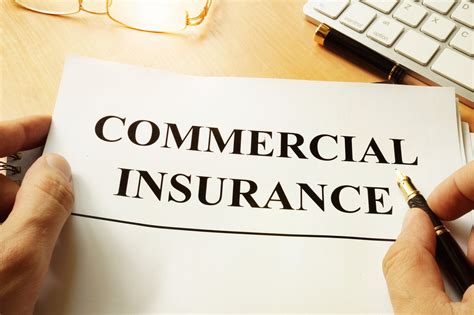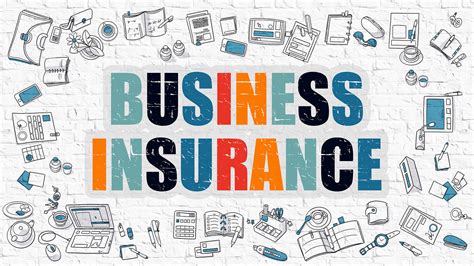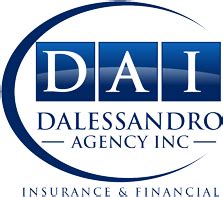Comercial Insurance

Commercial insurance is an essential aspect of risk management for businesses of all sizes. It provides protection and financial security against a wide range of potential losses and liabilities that companies may face in their day-to-day operations. In today's dynamic business environment, having robust commercial insurance coverage is crucial to ensure the stability and longevity of any organization.
Understanding Commercial Insurance

Commercial insurance, also known as business insurance, is a broad term that encompasses various types of policies designed to protect commercial entities. These policies are tailored to the specific needs and risks associated with different industries and business activities. From small startups to large multinational corporations, commercial insurance plays a vital role in mitigating potential financial setbacks and legal liabilities.
The primary objective of commercial insurance is to safeguard businesses from unforeseen events and circumstances that could disrupt their operations and impact their bottom line. Whether it's property damage, liability claims, employee injuries, or cyber attacks, having the right insurance coverage can mean the difference between a minor setback and a catastrophic loss.
Key Components of Commercial Insurance
Commercial insurance policies are often customized to meet the unique needs of each business. However, there are several core components that are commonly included in most commercial insurance packages:
- Property Insurance: This coverage protects a business's physical assets, including buildings, inventory, equipment, and furniture, from damage or loss due to fire, storms, vandalism, or other covered perils.
- Liability Insurance: Liability insurance provides protection against claims arising from bodily injury, property damage, or personal and advertising injury that occur as a result of the business's operations. It covers legal defense costs and any resulting damages awarded to claimants.
- Business Interruption Insurance: Also known as business income insurance, this coverage reimburses a business for lost income and ongoing expenses if it has to suspend operations due to a covered peril, such as a fire or natural disaster.
- Workers' Compensation Insurance: This insurance is mandatory in most states and covers medical expenses and a portion of lost wages for employees who are injured or become ill due to their work. It also provides protection against potential lawsuits from injured employees.
- Professional Liability Insurance: Also referred to as errors and omissions (E&O) insurance, this policy protects professionals, such as consultants, accountants, and lawyers, from claims of negligence or errors made in the course of their work.
- Commercial Auto Insurance: If a business owns or leases vehicles, this insurance covers the cost of repairs, liability, and medical expenses in the event of an accident involving a company vehicle.
- Cyber Liability Insurance: With the increasing reliance on technology, cyber liability insurance is becoming essential. It provides protection against data breaches, hacking, and other cyber-related incidents that can lead to significant financial losses.
These are just a few examples of the key components of commercial insurance. Depending on the nature of the business, additional specialized policies may be required, such as product liability insurance, employment practices liability insurance, or directors and officers (D&O) liability insurance.
Benefits of Comprehensive Commercial Insurance

Having comprehensive commercial insurance offers numerous advantages to businesses:
- Financial Protection: The primary benefit of commercial insurance is financial security. It provides a safety net for businesses, allowing them to recover from losses and continue operations without incurring significant financial burdens.
- Risk Management: By identifying and understanding the risks associated with their operations, businesses can take proactive measures to mitigate those risks. Commercial insurance policies help businesses manage and transfer risks effectively.
- Legal Protection: Liability insurance is a critical component of commercial insurance. It protects businesses from potential lawsuits and legal expenses that could arise from accidents, injuries, or negligence claims.
- Peace of Mind: Knowing that their business is adequately insured gives business owners and stakeholders peace of mind. They can focus on growth and innovation without constantly worrying about potential losses or liabilities.
- Attracting Investors and Partners: Comprehensive commercial insurance coverage is often a prerequisite for attracting investors, securing loans, or entering into partnerships. It demonstrates a commitment to risk management and can enhance a business's credibility.
- Business Continuity: In the event of a covered loss, commercial insurance can provide the necessary funds to quickly resume operations. This ensures business continuity and minimizes disruption to customers, employees, and stakeholders.
The Importance of Customized Insurance Solutions
While there are common elements across commercial insurance policies, it’s crucial to recognize that every business is unique. The risks and exposures faced by a manufacturing company, for example, will differ significantly from those of a technology startup or a professional services firm.
Therefore, it's essential to work with experienced insurance brokers or agents who can assess the specific needs of your business and tailor an insurance program accordingly. They can help identify potential gaps in coverage and recommend additional policies or endorsements to ensure comprehensive protection.
Industry-Specific Commercial Insurance
Different industries have distinct risks and exposures that require specialized insurance coverage. Here are a few examples of industry-specific commercial insurance needs:
| Industry | Insurance Considerations |
|---|---|
| Manufacturing | In addition to standard commercial insurance, manufacturers may require product liability insurance to cover claims arising from defective products. They may also need pollution liability insurance to address environmental risks. |
| Healthcare | Healthcare providers, such as hospitals and clinics, face unique risks. Medical malpractice insurance is crucial to protect against potential negligence claims. They may also need cyber liability insurance to safeguard patient data. |
| Construction | The construction industry deals with heavy equipment and potential hazards. Builders' risk insurance covers damage to structures during construction, while contractors' liability insurance protects against claims arising from accidents or injuries on the job site. |
| Retail | Retail businesses often require product liability insurance to cover claims related to defective products sold to customers. They may also need employee dishonesty insurance to protect against theft or fraud by employees. |
| Technology | Tech companies face unique challenges, including data breaches and cyber attacks. Cyber liability insurance is a must-have, along with media liability insurance to protect against claims arising from intellectual property or copyright infringement. |

These are just a few examples, and each industry may have its own set of specific insurance needs. It's important for businesses to understand their unique risks and consult with insurance professionals to develop a customized insurance plan.
Best Practices for Commercial Insurance
To ensure your business is adequately protected, consider the following best practices when it comes to commercial insurance:
- Regular Policy Review: Review your insurance policies annually or whenever there are significant changes to your business operations, such as expansion, new products, or additional employees. Ensure your coverage keeps up with your evolving needs.
- Risk Assessment: Conduct regular risk assessments to identify potential hazards and vulnerabilities. This helps you prioritize coverage needs and make informed decisions about your insurance program.
- Loss Prevention: Implement loss prevention measures to reduce the likelihood and severity of losses. This can include safety training for employees, regular maintenance of equipment, and adopting best practices in your industry.
- Claims Management: Develop a clear process for handling insurance claims. Promptly report any incidents or losses to your insurance provider and cooperate fully with their investigations. Effective claims management can streamline the process and ensure timely reimbursement.
- Insurance Broker or Agent: Work with a reputable insurance broker or agent who has experience in your industry. They can provide valuable insights, negotiate better rates, and help you navigate the complex world of commercial insurance.
Future Trends in Commercial Insurance
The commercial insurance landscape is continuously evolving, driven by technological advancements, changing regulations, and emerging risks. Here are some trends to watch:
- Digital Transformation: The insurance industry is embracing digital technologies to enhance efficiency and improve the customer experience. From online policy management to real-time claims processing, digital tools are revolutionizing the way commercial insurance is delivered and managed.
- Cyber Risks: With the increasing reliance on technology and the rise of cyber attacks, cyber liability insurance is expected to become even more critical. Businesses must stay vigilant and adapt their insurance strategies to address evolving cyber threats.
- Environmental and Social Considerations: There is a growing focus on environmental, social, and governance (ESG) factors in the insurance industry. Insurers are increasingly considering these factors when underwriting policies and developing new products to address sustainability-related risks.
- Data Analytics: Advanced data analytics and artificial intelligence are being used to better understand and manage risks. Insurers are leveraging these technologies to personalize insurance offerings and provide more accurate pricing based on individual business needs.
By staying informed about these trends and working closely with insurance professionals, businesses can ensure they have the right coverage to navigate an ever-changing risk landscape.
Conclusion

Commercial insurance is a vital component of any business’s risk management strategy. It provides financial protection, legal defense, and peace of mind, allowing businesses to focus on their core operations and growth. By understanding their unique risks and working with experienced insurance brokers, businesses can develop customized insurance programs that offer comprehensive coverage and peace of mind.
What is the difference between commercial insurance and personal insurance?
+Commercial insurance is designed to protect businesses from various risks, including property damage, liability claims, and business interruptions. On the other hand, personal insurance, such as homeowners or auto insurance, is intended for individuals and their personal assets. Commercial insurance policies are tailored to the specific needs of businesses, whereas personal insurance policies focus on individual risks and liabilities.
How can I determine the right amount of commercial insurance coverage for my business?
+The amount of commercial insurance coverage your business needs depends on various factors, including the size and nature of your operations, the value of your assets, and the level of risk exposure. It’s recommended to work with an insurance broker who can assess your specific needs and recommend appropriate coverage limits. Regularly reviewing and updating your coverage as your business grows is essential.
What happens if I don’t have commercial insurance and my business faces a major loss or liability claim?
+Operating a business without commercial insurance can be extremely risky. In the event of a major loss or liability claim, you may be personally liable for the financial damages, which could lead to significant financial strain or even bankruptcy. It’s important to understand that commercial insurance is not just a legal requirement in many cases but also a crucial safeguard for your business’s financial well-being.
Can I customize my commercial insurance policy to fit my business’s unique needs?
+Absolutely! Commercial insurance policies can be tailored to meet the specific risks and requirements of your business. Working with an experienced insurance broker, you can discuss your unique operations, identify potential gaps in coverage, and add endorsements or additional policies to ensure comprehensive protection. Customizing your insurance program ensures that you have the right coverage in place.



